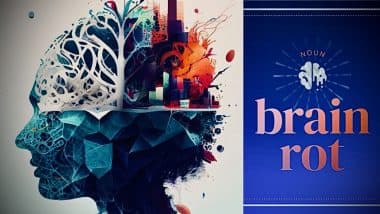Experts have long examined the relationship between social media and mental health challenges, raising important questions about the extent of its impact. Although many attribute a range of cognitive issues—such as partial memory loss, shorter attention spans, and difficulty being present at the moment—to social media use, experts argue that the evidence supporting these claims is not as robust as the moral panic suggests. Understanding Gen Alpha Lingo: A Perspective From Gen Z.
Concerns surrounding phenomena such as doomscrolling have led to the perception of social media as an addiction, which may diminish our ability to concentrate. Additionally, there are worries about youth struggling with concepts of body positivity and self-validation in the face of the overwhelming presence of curated online content. This constant comparison to idealized representations can contribute to heightened anxiety and decreased overall peace of mind among individuals. ‘Gen Z Pout’ Takes Over Millennial Duck Face: The New ‘It’ Social Media Pose.
Furthermore, the mastery of digital communication seems to be eroding organic human connections, prompting some countries to implement bans on social media for children under specific age limits to protect their educational experiences and fragile mental states. As this conversation continues to unfold, understanding the nuances of social media's influence on mental health remains crucial.
Is the Idea of 'Internet-Induced Brain Rot' Just a Myth?
In 2023, researcher Andrew Przybylski and his team looked at data from nearly 12,000 children in the US aged 9 to 12. They found no clear link between how much time kids spend on screens and their brain development or overall well-being. Przybylski points out that some studies seem to confirm our worries about technology, but they often just reflect our existing fears rather than provide real evidence.
While it doesn’t seem like using digital devices causes any lasting harm to our brains, it’s still essential to be mindful of how we use them. A survey showed that 43% of Americans feel addicted to their smartphones, with the average person checking their phone at least 205 times a day! For older generations, who didn’t grow up with smartphones, adjusting to this new tech can be particularly challenging. Only a small group of seniors still prefer reading print magazines or newspapers. Gen Beta Era Starts From 2025: What Does It Mean for the New Generation ‘Beta Babies?’
In recent years, there has been growing concern that the internet might negatively affect our brains. Some people believe this worry stems from parents who aren't very tech-savvy. With declining literacy rates and shorter attention spans, especially the noticeable rise in ADHD diagnoses in the UK since the early 2020s, fears about cognitive decline have only increased.
The impact of being constantly connected is becoming clearer. Oxford University Press named “Brain Rot” the word of the year for 2024. However, Professor Andrew Przybylski and other academics do not agree with the idea that screens are damaging our minds.
Moral of the Story
“Manage your devices, don’t let them manage you.” Only you understand how your relationship with your phone impacts your life. If you feel anxious without it, use it to ease uncomfortable feelings, or find it hard to engage with friends without being glued to your screen, it’s a sign to reflect on your habits. You have the power to take control, regardless of external opinions.
(The above story first appeared on LatestLY on Feb 03, 2025 02:03 PM IST. For more news and updates on politics, world, sports, entertainment and lifestyle, log on to our website latestly.com).













 Quickly
Quickly


